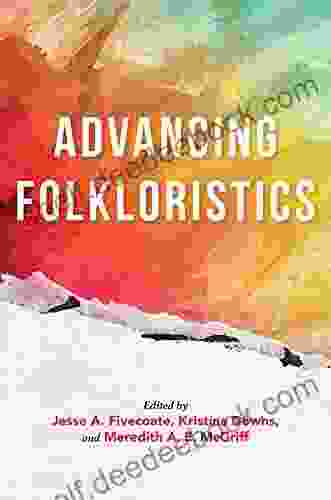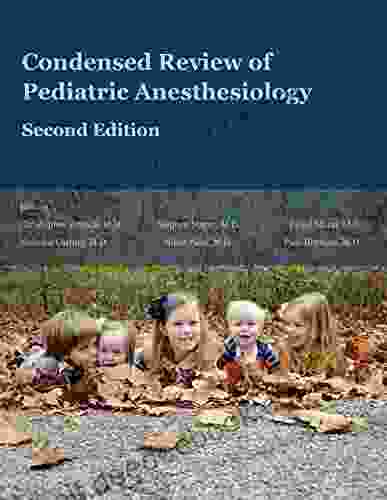Phenomenology in Weimar Musical Thought: New Material Histories of Music

The phenomenological movement was a major intellectual force in Weimar Germany, influencing a wide range of disciplines, including music. Phenomenology is a philosophical approach that seeks to understand the world through the experiences of conscious beings. It emphasizes the importance of subjectivity and lived experience, and it rejects the idea that there is an objective reality that can be known independently of human consciousness.
5 out of 5
| Language | : | English |
| File size | : | 4517 KB |
| Text-to-Speech | : | Enabled |
| Enhanced typesetting | : | Enabled |
| Print length | : | 291 pages |
| Lending | : | Enabled |
| Screen Reader | : | Supported |
The phenomenological movement in music was led by a group of composers, performers, and theorists who were interested in exploring the ways in which music could express the subjective experiences of listeners. These musicians were influenced by the work of Edmund Husserl, the founder of phenomenology, and they sought to apply his ideas to the study of music.
The phenomenological movement in Weimar music had a profound impact on the development of musical practices and concepts during this period. It led to the emergence of new forms of musical expression, and it challenged traditional notions of musical form and structure. The phenomenological movement also had a significant influence on the development of music theory, and it helped to establish the field of music psychology.
The Phenomenological Movement in Music
The phenomenological movement in music began in the early 1920s with the work of a group of composers, performers, and theorists who were interested in exploring the ways in which music could express the subjective experiences of listeners. These musicians were influenced by the work of Edmund Husserl, the founder of phenomenology, and they sought to apply his ideas to the study of music.
One of the most important figures in the phenomenological movement in music was the composer Erwin Schulhoff. Schulhoff was a Czech composer who was interested in exploring the ways in which music could express the emotions and experiences of everyday life. He wrote a number of works that were inspired by phenomenological philosophy, including his Five Pieces for String Quartet (1923) and his opera The Flames (1928).
Another important figure in the phenomenological movement in music was the performer and theorist Hans Mersmann. Mersmann was a German musicologist who was interested in the ways in which music could be experienced and understood. He wrote a number of books on phenomenology and music, including The Phenomenology of Music (1925) and The Structure of Music (1932).
The phenomenological movement in music had a profound impact on the development of musical practices and concepts during this period. It led to the emergence of new forms of musical expression, and it challenged traditional notions of musical form and structure. The phenomenological movement also had a significant influence on the development of music theory, and it helped to establish the field of music psychology.
New Material Histories of Music
In recent years, there has been a growing interest in the material histories of music. This approach to music history seeks to understand the ways in which music is shaped by the material conditions of its production and reception. This includes the study of musical instruments, recording technologies, and performance practices.
New material histories of music have shed new light on the phenomenological movement in music. By examining the material conditions in which phenomenological music was produced and received, we can gain a deeper understanding of the ways in which it shaped musical practices and concepts.
For example, the study of musical instruments has shown that the development of new instruments in the early 20th century, such as the theremin and the ondes martenot, played a significant role in the emergence of phenomenological music. These instruments allowed composers to explore new sounds and textures, and they helped to create a sense of sonic immersion that was essential to the phenomenological experience.
The study of recording technologies has also shed light on the phenomenological movement in music. The development of recording technologies in the early 20th century made it possible to capture and reproduce musical performances in a way that had never been possible before. This allowed composers and performers to experiment with new forms of musical expression, and it helped to create a new audience for phenomenological music.
The study of performance practices has also contributed to our understanding of the phenomenological movement in music. The phenomenological movement in music was characterized by a new emphasis on live performance. Composers and performers sought to create musical experiences that were immediate and immersive, and they often used live performance as a way to explore the subjective experiences of listeners.
The phenomenological movement in Weimar musical thought was a significant force in the development of musical practices and concepts during this period. It led to the emergence of new forms of musical expression, and it challenged traditional notions of musical form and structure. The phenomenological movement also had a significant influence on the development of music theory, and it helped to establish the field of music psychology.
New material histories of music have shed new light on the phenomenological movement in music. By examining the material conditions in which phenomenological music was produced and received, we can gain a deeper understanding of the ways in which it shaped musical practices and concepts.
5 out of 5
| Language | : | English |
| File size | : | 4517 KB |
| Text-to-Speech | : | Enabled |
| Enhanced typesetting | : | Enabled |
| Print length | : | 291 pages |
| Lending | : | Enabled |
| Screen Reader | : | Supported |
Do you want to contribute by writing guest posts on this blog?
Please contact us and send us a resume of previous articles that you have written.
 Chapter
Chapter Story
Story Library
Library Newspaper
Newspaper Paragraph
Paragraph Sentence
Sentence Bookmark
Bookmark Shelf
Shelf Foreword
Foreword Preface
Preface Annotation
Annotation Footnote
Footnote Manuscript
Manuscript Bestseller
Bestseller Classics
Classics Narrative
Narrative Biography
Biography Autobiography
Autobiography Reference
Reference Encyclopedia
Encyclopedia Dictionary
Dictionary Thesaurus
Thesaurus Character
Character Resolution
Resolution Catalog
Catalog Card Catalog
Card Catalog Borrowing
Borrowing Stacks
Stacks Study
Study Lending
Lending Academic
Academic Reading Room
Reading Room Special Collections
Special Collections Interlibrary
Interlibrary Dissertation
Dissertation Storytelling
Storytelling Reading List
Reading List Book Club
Book Club Theory
Theory Textbooks
Textbooks D J Dewhurst
D J Dewhurst Anne Rice
Anne Rice Jane Hamilton
Jane Hamilton Mark Cosdon
Mark Cosdon Thomas Mcdowell
Thomas Mcdowell Tessonja Odette
Tessonja Odette Joy Deja King
Joy Deja King James Tall
James Tall Matt R Cole
Matt R Cole Anna Smithers
Anna Smithers Kimberley Griffiths Little
Kimberley Griffiths Little Beverly Crider
Beverly Crider Judith Chernaik
Judith Chernaik Timothy Hallinan
Timothy Hallinan Camille Blachowicz
Camille Blachowicz Benjamin Steege
Benjamin Steege Barbara Kerley
Barbara Kerley Sandip Roy
Sandip Roy Mar Sharpe
Mar Sharpe Lesli Richardson
Lesli Richardson
Light bulbAdvertise smarter! Our strategic ad space ensures maximum exposure. Reserve your spot today!

 Howard BlairLiberalism and the Paradox of Coloniality: A Critical Examination of Global...
Howard BlairLiberalism and the Paradox of Coloniality: A Critical Examination of Global... Kenzaburō ŌeFollow ·6.9k
Kenzaburō ŌeFollow ·6.9k Nathan ReedFollow ·9.6k
Nathan ReedFollow ·9.6k Dallas TurnerFollow ·15.2k
Dallas TurnerFollow ·15.2k Gage HayesFollow ·15.7k
Gage HayesFollow ·15.7k Julio CortázarFollow ·11.3k
Julio CortázarFollow ·11.3k Cooper BellFollow ·5.6k
Cooper BellFollow ·5.6k Joseph ConradFollow ·16k
Joseph ConradFollow ·16k Johnny TurnerFollow ·5k
Johnny TurnerFollow ·5k

 Beau Carter
Beau CarterLater Political Writings: A Window into the Evolution of...
Political thought, like...

 Tyrone Powell
Tyrone PowellThe Essential Guide to Family School Partnerships:...
: The Importance of...

 Christian Barnes
Christian BarnesAdvancing Folkloristics: Conversations with Jesse...
Dr. Jesse Fivecoate is an...

 Jake Carter
Jake CarterHal Leonard DJ Method Connell Barrett: A Comprehensive...
Are you ready...

 John Updike
John UpdikeCondensed Review of Pediatric Anesthesiology Second...
Condensed Review of...

 Guillermo Blair
Guillermo BlairExploring the Complexities of Motherhood and Identity: A...
Elena Ferrante's "The Lost...
5 out of 5
| Language | : | English |
| File size | : | 4517 KB |
| Text-to-Speech | : | Enabled |
| Enhanced typesetting | : | Enabled |
| Print length | : | 291 pages |
| Lending | : | Enabled |
| Screen Reader | : | Supported |










